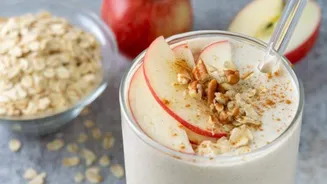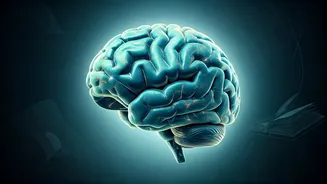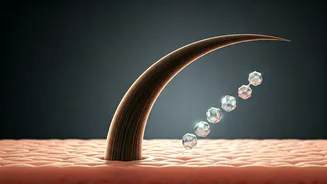Unraveling the Truth About Coffee: Myths, Facts & Health Benefits. Dive in to discover how coffee impacts your mind and body!
Namaste readers! For many Indians, a hot cup of chai is the go-to beverage to kickstart
the day. However, coffee is steadily gaining popularity, especially among the younger generation. But with so many opinions floating around, it's difficult to know if coffee is actually good for you.

Let's dive into the world of coffee and separate the myths from the facts, shall we?
Caffeine in coffee boosts alertness by blocking sleep signals
The most well-known aspect of coffee is, of course, its caffeine content. Caffeine is a natural stimulant that affects the central nervous system, making you feel more alert and focused.

Many folks reach for coffee when they need a little extra pep, be it before a big meeting or when struggling with that afternoon slump. Caffeine achieves this by blocking adenosine, a neurotransmitter that promotes sleepiness.
Think of it as temporarily putting a pause on your brain's "rest" signal. This is why you feel perked up and ready to take on the world after a good cuppa.
Caffeine enhances cognitive function and physical performance
But the benefits of caffeine extend beyond simple wakefulness. Studies have shown that caffeine can improve cognitive function, including memory, attention, and reaction time. This can be particularly helpful for students cramming for exams or professionals working on complex projects.

Furthermore, caffeine can also enhance physical performance. It increases adrenaline levels, which can improve endurance and reduce fatigue during exercise. You might find yourself running that extra mile or pushing through a tough workout with a bit more ease.
Remember, though, that everybody's body reacts differently to caffeine. What may be a perfect boost for one person could leave another feeling jittery and anxious. Finding your ideal caffeine intake is key to enjoying the benefits without the undesirable side effects.
Pay attention to how your body feels after drinking coffee and adjust accordingly. This way, you can make the most of the energizing and cognitive-enhancing effects of this popular beverage.
Coffee is a nutrient-packed beverage with antioxidants
Beyond the caffeine kick, coffee is surprisingly packed with beneficial nutrients. It's not just an empty calorie drink. Coffee beans contain antioxidants, which are compounds that help protect your cells from damage caused by free radicals.

These free radicals are unstable molecules that can contribute to aging and various health problems. Coffee is a significant source of antioxidants for many people, often surpassing the antioxidant content of some fruits and vegetables.
This antioxidant power may play a role in reducing the risk of certain chronic diseases.
Coffee provides micronutrients like riboflavin, niacin, magnesium, and potassium for vital bodily functions
Coffee contains several important micronutrients, including riboflavin (vitamin B2), niacin (vitamin B3), magnesium, and potassium. These nutrients are essential for various bodily functions, such as energy production, nerve function, and maintaining healthy blood pressure.

While the amounts of these nutrients in a single cup of coffee may not be huge, they can contribute to your overall daily intake. For instance, riboflavin helps convert food into energy, while magnesium is vital for muscle and nerve function.
Drinking coffee, therefore, isn't just about the alertness; it's also a way to subtly boost your intake of these crucial nutrients.
Coffee consumption linked to reduced risk of diseases like type 2 diabetes and liver diseases
Some studies suggest a link between coffee consumption and a reduced risk of certain diseases. For example, coffee drinkers may have a lower risk of developing type 2 diabetes.

The exact mechanism isn't fully understood, but it's thought that coffee's antioxidants and other compounds may play a role in improving insulin sensitivity and reducing inflammation.
Similarly, some research indicates a lower risk of liver diseases, such as cirrhosis and liver cancer, among coffee drinkers. Coffee appears to protect the liver by reducing inflammation and preventing the buildup of scar tissue.
In addition, there's evidence suggesting that coffee consumption may be associated with a lower risk of neurodegenerative diseases like Parkinson's and Alzheimer's. Caffeine may protect against these diseases by boosting dopamine levels in the brain and reducing inflammation.
Black coffee is healthiest; watch sugar, cream, and caffeine intake
If you wish to include coffee in your diet, doing it the right way is crucial. Black coffee which means coffee without sugar and cream is the healthiest way to consume coffee. Excessive amounts of sugar and cream add unnecessary calories and can negate some of the health benefits.

Be mindful of your caffeine intake, especially if you are sensitive to caffeine. Drinking too much coffee can cause anxiety, insomnia, and digestive issues. Start with a small amount of it and see how your body reacts to the caffeine in coffee.
Also, avoid drinking coffee too late in the day, as it can interfere with your sleep.
Consult a doctor before drinking coffee for health concerns
Also, it is to be noted that not everyone should drink coffee. People with certain health conditions, such as anxiety disorders, insomnia, or heart problems, should consult a doctor before consuming coffee. Pregnant women and breastfeeding mothers should also limit their caffeine intake.

Your health is important and be sure to follow all precautions before starting a new habit.
Coffee can be healthy in moderation; listen to your body
So, is coffee good for you? Like most things in life, the answer is nuanced and depends on individual factors. For many people, coffee can be a healthy and enjoyable beverage that provides a boost of energy, antioxidants, and other beneficial nutrients.
However, it's essential to consume coffee in moderation and be mindful of your own tolerance and health conditions. Listen to your body, choose healthy preparations, and enjoy your cup of joe responsibly.
Coffee's benefits for health and seeking help for insomnia and anxiety
Coffee contains essential nutrients and caffeine improves the concentration level. If you have insomnia and anxiety reach out to the doctor and take professional recommendation
AI Generated Content. Glance/InMobi shall have no liability for the content

















